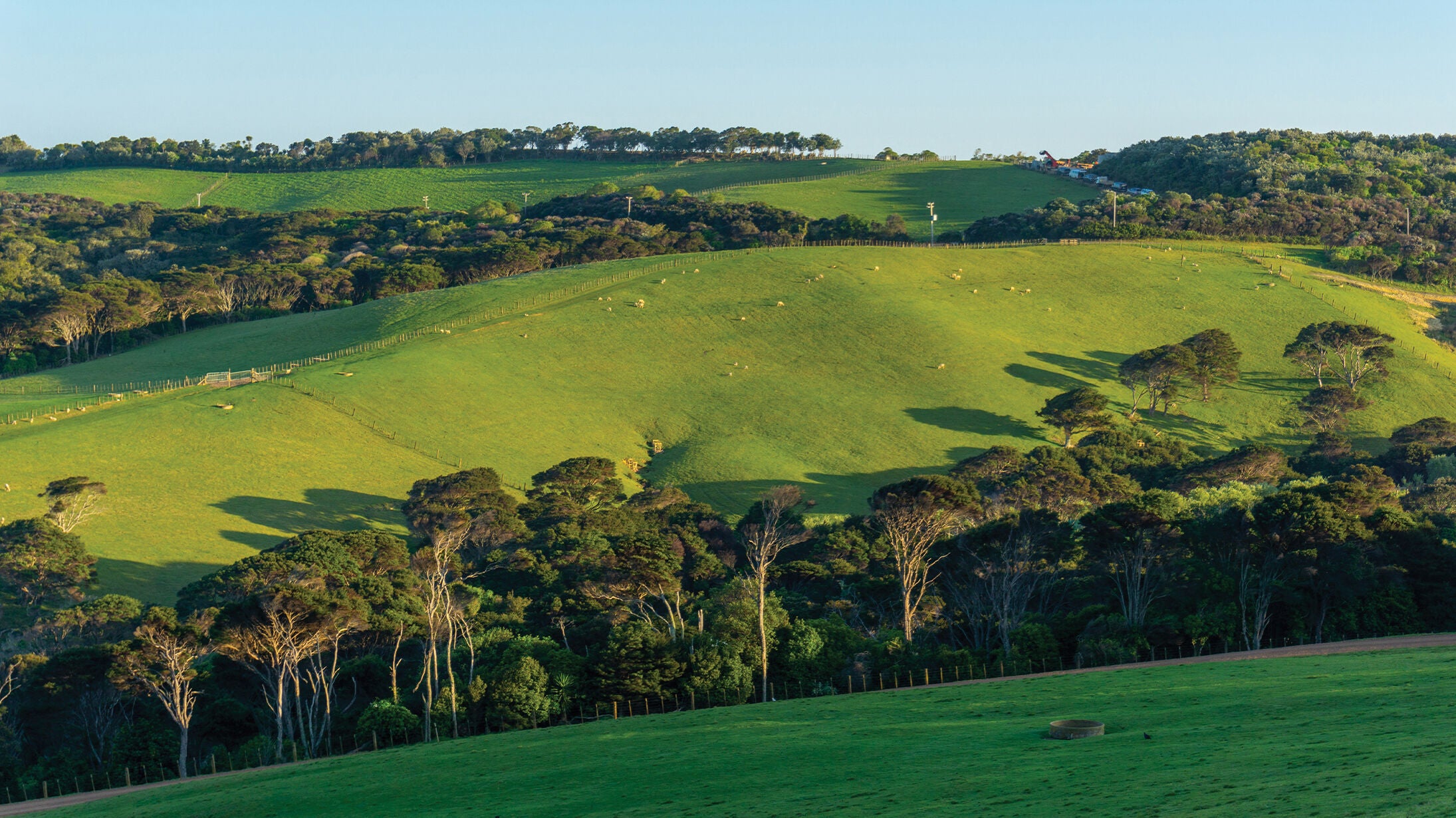View Auckland -
Kiwis love the lifestyle

The lifestyle sales market has answered challenges with growing optimism, and 2024 offers new opportunities for buyers and sellers.
Kiwis have continued their affinity for lifestyle properties, new data shows. According to the Real Estate Institute of New Zealand (REINZ), sales activity rose 6.2 percent in the December 2023 quarter, with values lifting and a more positive market sentiment mirroring wider residential market trends.
The value of land has lifted steadily, although buyers remain in a favourable position as a flurry of new listings on the market for sale offers more choice and a seat at the negotiation table.
“Our trained lifestyle experts report good attendance at open homes, and enquiries on lifestyle property listings are rising. Although, buyers remain cautious, particularly given recent volatility in the interest rate outlook,” says Raymond Mountfort, Bayleys general manager of lifestyle.
ECONOMIC CONSIDERATIONS
At the beginning of February, financial markets were broadly factoring in rate cuts as early as August 2024. However, both recent labour market data and house prices have come in stronger than expected, suggesting domestic inflation pressures remain persistent and require the attention of policymakers.
Resilient data means the market is more stubborn than first thought. Although, it takes a while for changes in monetary policy to impact real inflation, mainly as more borrowers come off fixed mortgage rate terms onto substantially higher lending rates.
An increase in new listings at the start of the year reflected sellers’ confidence in brighter prospects, with inflation indicators broadly trending down, global chatter mostly confident interest rates had passed their peak, and migration-driven population pressures adding demand for homes across the country. Many of these factors still remain in play, making for a see-sawing confluence of market dynamics.
The housing market will remain a critical battleground for the central bank, with any perceived buoyancy likely attracting policymakers’ toolkits’ unwanted attention. Despite clear intentions to keep a lid on value growth, policymakers have suggested easing Loan-to-Value Ratios (LVR) if Debt-to-Income (DTI) measures are introduced, and we’ve recently learned that bank assessment criteria are also set to loosen up.
The central bank has proposed allowing banks to write an additional five percent of their mortgages to owner-occupiers with less than a 20 percent deposit. At the same time, they are limiting capital lending to 20 percent for owner-occupiers with a DTI greater than six times their income.
The proposal functions broadly as infrastructure to protect financial stability, borrowers, and the wider market from speculative behaviour during the next market boom. However, the associated loosening of LVR settings will provide support for house prices, as they offer buyers more leverage for the same amount of equity.
LAND SCARCITY
Incongruence between local and central government development objectives remains another critical consideration for buyers and sellers in the lifestyle sales market.
Where the new government has recommitted to sustainable greenfield development, its approach has met resistance from Auckland Council. The latter prefer to build homes in established areas to make better use of existing infrastructure.
At the end of last year, Auckland Council voted to withdraw zoning designations for approximately 4,800 hectares of land on Supercity’s urban boundaries as part of its Future Development Strategy (FDS). It also pledged to prioritise infrastructure spending in areas where growth is already occurring.
Changes have created uncertainty amongst the development community, which remains cautious about development acquisition. This behaviour has limited competitive bidding on a selection of lifestyle properties appropriately zoned to allow greater density.
REINZ has acknowledged policy changes have reduced the amount of productive land being subdivided, meaning there is a lower level of bare land blocks available on the market for sale.
However, zoning roadblocks, particularly restrictions and changes to areas previously assigned Future Urban overlays, are positioned to increase land value in areas ‘where growth is already occurring’.
MODERN LIVING PATTERNS
Adverse weather events, global health concerns, and the proliferation of concrete across urban areas have invariably sparked a shift in Kiwis’ lifestyle preferences, being a key catalyst for buyers moving between the residential and lifestyle sales markets.
Once-rural communities are now better connected than ever before, offering streamlined transit into urban areas where amenities, schooling and employment are centred, and buyers are well-informed of upcoming infrastructure projects that stand to add value in emerging suburbs.
Auckland’s Northwest is expected to see a Rapid Transport Corridor (RTC) established in the coming years, facilitating faster transport connections from Kumeū-Huapai to high-demand destinations, including Westgate and the city centre. The South, too, will enjoy greater investment thanks to prioritisation for long-term infrastructure investment, making communities surrounding Puhinui and Drury more attractive lifestyle destinations.
At the same time, residential construction levels continue to fall, implying that we’re headed for another period of underbuilding. Demand for bare land blocks continues to increase. However, higher building and site development costs are a current constraint on activity.
With so many aspects to consider, it is clear that the lifestyle sales market is in for an interesting year as it responds to the evolving demands of modern living patterns.
Weakness in traditional price trend analysis is showing, as modern considerations influence purchasing decisions in 2024. Purchasers, for instance, are increasingly drawn to smaller lifestyle sections on urban fringes, which inherently bring down median sale metrics.
Understanding and leveraging change requires a nuanced understanding of economic considerations, policy adjustments, and the interplay between buyer preferences and development changes. Our team of lifestyle sales experts are well-positioned to provide this insight and offer a competitive edge when lifting your lifestyle property for sale.